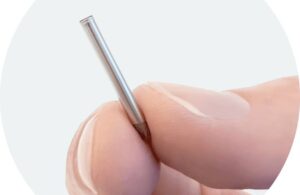
The company initiated its LIBERATE-1 trial at two centers in Austrlalia. It will evaluate the miniature GLP-1 (exenatide) implant in obese and overweight subjects.
This study follows FDA approval for an investigational new drug (IND) application for the company’s implant in June. The FDA lifted the clinical hold on Vivani’s NPM-119, allowing the initiation of its LIBERATE-1 Phase 1 clinical trial. This trial looks at the safety, tolerability and pharmacokinetics of NPM-119 (exenatide), the company’s miniature, six-month GLP-1 implant in development for the treatment of type 2 diabetes.
Vivani’s implant utilizes the company’s proprietary NanoPortal drug implant technology. Alameda, California-based Vivani designed NanoPortal technology to steadily deliver medication over extended periods of time. The company aims to guarantee correct doses for patients while avoiding potential safety concerns around fluctuating drug release profiles. It can also deliver large hydrophilic molecules, including peptides and proteins. The company believes this enables a broader range of therapeutic applications.
LIBERATE-1 marks the first clinical application of Vivani’s NanoPortal drug implant technology. The company anticipates top-line data in mid-2025. Vivani also notes that the FDA and other regulatory authorities generally accept data generated in Australia. It hopes to use data from the study to support regulatory submissions in other geographies, including the U.S.
“Transitioning to a clinical stage biopharmaceutical company is a major milestone for our company and allows us to determine if the very encouraging results from our animal studies will translate to overweight or obese study subjects,” said Vivani President and CEO Adam Mendelsohn. “Preclinical weight loss and liver fat data announced earlier this year supports the potential for our GLP-1 implant to provide comparable efficacy to semaglutide, but with the significant benefit of twice-yearly administration.
“Our emerging portfolio of miniature, ultra long-acting, GLP-1 implants has the potential to be highly differentiated from the injectable and oral products currently on the market and in development. Our proprietary NanoPortal platform technology allows us to develop drug implants uniquely designed to address medication non-adherence, a critical challenge for many patients which we believe represents the largest opportunity to improve real world health outcomes for patients and provide the convenience of twice-yearly dosing.”
